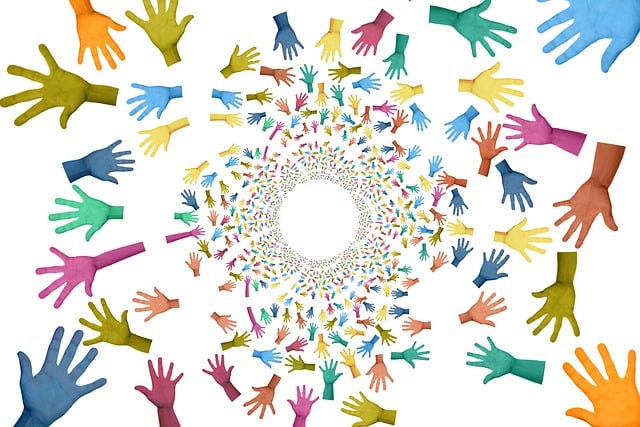Understanding Oregon's child welfare system is crucial for anyone involved, as the state prioritizes child safety while safeguarding parental rights. Free or low-cost Oregon legal assistance programs offer vital support to low-income families facing termination of parental rights or adoption proceedings. Organizations like Oregon Legal Assistance (OLA) and Oregon Law Center for the Homeless (OLCH) provide tailored legal services, free clinics, and advocacy to ensure fairness in complex child welfare cases. Key organizations such as Oregon Law Center for Children and Families (OLCCF) and Legal Aid Services of Oregon (LASO) offer court representation and education to protect parents' rights and promote positive outcomes for children.
“Oregon’s child welfare system, with its complex web of laws and regulations, can be daunting for parents involved in cases. Understanding your legal rights and access to Oregon legal assistance is crucial for navigating these challenges effectively. This comprehensive guide delves into the various aspects of Oregon legal support resources tailored for child welfare, including eligibility criteria, available services, and a step-by-step process to access aid. By empowering parents with knowledge, we aim to foster stronger advocacy for children within the state’s system.”
- Understanding Oregon's Child Welfare System and Legal Rights
- Eligibility for Legal Assistance in Oregon Child Welfare Cases
- Types of Legal Support Available for Low-Income Families
- Navigating the Process: How to Access Legal Aid Services
- Key Organizations Providing Oregon Legal Assistance for Child Welfare
- Empowering Parents: Using Legal Knowledge to Advocate for Children
Understanding Oregon's Child Welfare System and Legal Rights

Understanding Oregon’s Child Welfare System and Legal Rights is crucial for anyone involved in or affected by child protection proceedings. The state has a comprehensive system designed to ensure the safety, health, and well-being of children while also recognizing and protecting the rights of parents and guardians. Oregon legal assistance programs play a vital role in navigating this complex landscape, providing resources to help individuals understand their rights, access necessary services, and make informed decisions.
These assistance programs offer a range of services tailored to different needs, including representation in court, legal advice, and education on the child welfare process. They work collaboratively with state agencies, non-profits, and community organizations to foster a supportive environment for families involved in child welfare cases. By leveraging Oregon legal assistance, parents, guardians, and advocates can better navigate the system, ensuring that everyone’s voices are heard and rights are respected throughout the entire process.
Eligibility for Legal Assistance in Oregon Child Welfare Cases

In Oregon, individuals involved in child welfare cases may be eligible for legal assistance through various programs designed to ensure fair representation and outcomes. Legal aid organizations, funded by state and federal resources, play a crucial role in providing Oregon legal assistance to low-income families, including those facing termination of parental rights or adoption proceedings. These services are typically offered based on income eligibility guidelines, ensuring that financial status does not hinder access to justice.
Eligible clients can expect representation from qualified attorneys who specialize in family law and child welfare matters. The scope of Oregon legal assistance includes legal advice, preparation of court documents, representation in hearings, and advocacy for the best interests of the child. This support is vital for navigating complex legal processes, ensuring parents’ rights are protected, and ultimately improving outcomes for both families and children involved in child welfare cases.
Types of Legal Support Available for Low-Income Families

In Oregon, various legal support resources are dedicated to assisting low-income families involved in child welfare proceedings. One significant avenue is through Oregon Legal Assistance (OLA), a non-profit organization that provides free and confidential legal services to those who qualify. OLA offers a range of services tailored to family law matters, including representation in dependency cases, termination of parental rights, and custody battles. Their goal is to ensure that all families, regardless of financial means, have access to legal advocacy during these challenging times.
Additionally, the Oregon Law Center for the Homeless (OLCH) plays a crucial role in providing legal support to vulnerable populations. They offer free legal clinics specifically focused on family law issues, helping low-income parents navigate complex procedures and protect their rights. OLCH’s services extend to educating families about their legal options and connecting them with community resources, fostering a more supportive environment for those navigating the child welfare system.
Navigating the Process: How to Access Legal Aid Services

Navigating the complex child welfare system in Oregon can be challenging, especially for those unfamiliar with their rights and legal options. One crucial step towards ensuring a fair process is to access Oregon’s legal assistance resources. These services are designed to support individuals involved in child protective proceedings, providing them with much-needed legal guidance and representation.
Oregon offers various legal aid organizations and programs dedicated to helping residents navigate the child welfare system. These services are typically free or low-cost and cater to different income levels and legal needs. Whether it’s understanding removal orders, fostering a safe environment for children, or advocating for parental rights, legal aid professionals can offer invaluable support. Individuals can reach out to local legal aid offices, community organizations, or state-funded programs to connect with qualified attorneys who specialize in family law and child welfare.
Key Organizations Providing Oregon Legal Assistance for Child Welfare

In Oregon, several key organizations play a vital role in providing legal assistance for child welfare cases. One such prominent entity is the Oregon Law Center for Children and Families (OLCCF), dedicated to advocating for vulnerable children and families within the state’s juvenile justice and child welfare systems. They offer free legal services, including representation in court, to low-income families involved in dependency proceedings.
Another significant resource is the Legal Aid Services of Oregon (LASO), which provides a range of civil legal aid programs, including family law and children’s rights. LASO assists parents in navigating complex legal processes related to child welfare, ensuring their rights are protected throughout the dependency cases. These organizations form a crucial support network for families navigating challenging legal landscapes in Oregon’s child welfare system.
Empowering Parents: Using Legal Knowledge to Advocate for Children

In Oregon, parents involved in child welfare cases can significantly empower themselves and their children by gaining a solid understanding of their legal rights. Access to Oregon legal assistance plays a pivotal role in ensuring parents can navigate complex laws and regulations effectively. Armed with this knowledge, they become stronger advocates for their children’s well-being, enabling them to challenge inappropriate placements, understand termination of parental rights processes, and ensure fair treatment throughout the system.
Legal aid organizations in Oregon offer valuable resources, including legal advice, representation, and education tailored to child welfare matters. These services empower parents to participate actively in decisions affecting their children, ensuring their voices are heard and their interests protected. By leveraging Oregon legal assistance, parents can navigate the system more confidently, ultimately fostering better outcomes for both parents and children involved in child welfare proceedings.
